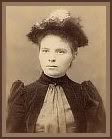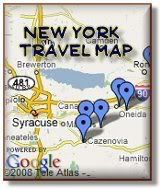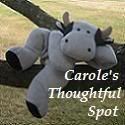The Invisible Holiday
Monday, November 19, 2007
Thanksgiving used to be the most celebrated American holiday. Today it is relegated to a mere mention between the supra-hyped Halloween and Christmas. Children make turkeys out of paper plates and everyone has brown napkins at the feasting table, whoopee.
In school, our textbooks told us that Thanksgiving started with the Puritans who gave thanks to the Indians for helping them through some tough times in Massachusetts. This is not accurate. Thanksgiving started with the Pilgrims, not the Puritans. The Pilgrims (aka, Separatists) wanted to pull out of the Church of England. Not unlike today's homeschooling parents, the Pilgrims saw that the probability of reform within a corrupted system was nil. They "separated" from the Church of England. The Puritans, on the other hand, believed the Church of England could be reformed under their influence. By 1630, intense persecution of English Puritans caused them to change their minds, and they, too, came to America.
The Pilgrims did not give thanks to the Indians. Of course, they were thankful for these new friends, but not thankful to them. The Pilgrims were thankful to God who had delivered them through some almost unbearable times. It is amazing to me that to this day, school textbooks claim that Thanksgiving is about the Pilgrims giving thanks to the Indians. lol!
One interesting and little known story about that fateful journey and landing at what is now Provincetown goes like this:
Once Upon a Time...
The year is 1608, in what would be later known as New England. A young Paxtuket Indian named Tisquantum and several other Native American Indians had been kidnapped by an English shipping merchant to be slaves in England. Tisquantum learned English during his time as a slave. He was able to return to his native land a few years later, but was again captured by another Englishman. During this time Tisquantum became familiar with the Christian faith from a compassionate and sympathetic monk. Tisquantum escaped his captor and sailed home on a friendly merchant ship.
Finally. in 1619 Tisquantum returned to his homeland, to the area we know now as the Massachusetts coastal area. He was devastated to discover that his entire tribe had been decimated by a strange plague (most historians now believe it was Bubonic Plague-- the Black Death-- brought over by flea-ridden French traders). Tisquantum was alone, but not for long...
In November, 1620, a small English ship could be seen struggling alongside the stormy Massachussets coast. It had been a very long journey for this little group in their tempest-tossed ship. This group of religious dissidents was fleeing persecution from their own people in their own land. They and untold others were victims of the never-ending religious battles that plagued Europe like the Black Death. These were the first poor, huddled masses yearning to breathe free; these were the first tempest-tossed wretched masses searching for light at the golden door.
The ship, the Mayflower, had sailed hundreds of miles off course and the ship's crew now sought to control its course toward the cape.
Originally, the ship's English passengers had been given a royal charter to settle in the parts of Northern Virginia-- the vicinity of New York's Hudson River. Strong winds and roiling waves from sea storms pounded the little vessel until the Mayflower, exhausted, gave up her course. The ship was bound for the rugged northern coast of New England. The group of Separatists on the ship feared entering this unchartered and ungoverned land. They decided to draft their own form of representative government, covenanting themselves under God without their king's approval. It was a momentuous action.
In the name of God, Amen.
We whose names are underwritten, the loyal subjects of our dread Sovereign Lord King James, by the Grace of God of Great Britain, France and Ireland, King, Defender of the Faith, etc.
Having undertaken, for the Glory of God and advancement of the Christian Faith and Honour of our King and Country, a Voyage to plant the First Colony in the Northern Parts of Virginia, do by these presents solemnly and mutually in the presence of God and one of another, Covenant and Combine ourselves together into a Civil Body Politic, for our better ordering and preservation and furtherance of the ends aforesaid; and by virtue hereof to enact, constitute and frame such just and equal Laws, Ordinances, Acts, Constitutions and Offices, from time to time, as shall be thought most meet and convenient for the general good of the Colony, unto which we promise all due submission and obedience.
In witness whereof we have hereunder subscribed our names at Cape Cod, the 11th of November, in the year of the reign of our Sovereign Lord King James, of England, France and Ireland the eighteenth, and of Scotland the fifty-fourth. Anno Domini 1620.
No doubt that the desolate Tisquantum had spotted the Mayflower when it arrived. He probably knew of the Pilgrims' struggles that horrible winter, when half of the settlers perished from hunger and the harsh New England weather that winter. He probably marveled that even despite such heartbreaking loss, these Pilgrims continued to trust in God and were thankful to Him. Perhaps he even sympathized for them, having lost his own people. Tisquantum made the momentous decision to aid these people. His English came in very handy, wouldn't you say? He taught them to plant corn, showed them edible roots and berries, and helped them prepare for the next winter to come. They called their new friend "Squanto" and through him made peace with the other Native American tribes. Their treaties of peace between the Pilgrims and Indians lasted over half a century. This is indeed amazing, when one considers the constant wars and violent Indian outbreaks for the other European groups (like Jamestown and St. Augustine) up and down the American coast.
The Pilgrims saw Squanto's aid as Divine Providence, and indeed it was. From the storm in November that had cast the Mayflower off course to the treaties with the local tribes, all fitted together as perfectly as a supernatural jigsaw puzzle. The Pilgrims realized that if the Mayflower had not been blown off course, they would have been unprepared for the hostile Iroquois Indians that lived in those parts of New York--the area deemed to them in their original charter from the king. Miraculously, the Mayflower sailed directly to an "empty" area, the area of Squanto's people, who had died only a few months earler and had left behind cleared land and stores of food for the winter. Squanto graciously welcomed this new group to his people's land.
The first great harvest meal- Thanksgiving, as it was called-- occurred in 1621. The Pilgrims invited their Indian friends and allies, who brought food and supplies. The feasting and rejoicing between Indian and Pilgrim continued for three days.
Presidents of the United States of America have traditionally given a "Thanksgiving Proclamation" in honor and memory of this monumental event and feast. It began in 1789, right after the Founding Fathers finished the Bill of Rights. These proclamations are to remind us that it is He--God- who made us and our nation, and not we ourselves. George Washington had said:
Whereas it is the duty of all nations to acknowledge the providence of Almighty God, to obey His will, to be grateful for His benefits, and humbly to implore His protection and favor. . . . Now, therefore, I do appoint Thursday, the 26th day of November 1789 . . . that we may all unite to render unto Him our sincere and humble thanks for His kind care and protection.
For years after this, presidents gave Thanksgiving proclamations only sporadically. Jefferson refused to do it. Other forgot or ignored it or were preoccupied with Manifest Destiny. Proclamations continued on a state level, bu nothing nationally. It was Abraham Lincoln, during those tempest-tossed years of the Civil War, who tried to harness our country back to her moorings:
We often forget the Source from which the blessings of fruitful years and healthful skies come. . . No human wisdom hath devised nor hath any mortal hand worked out these great things. They are the gracious gifts of the Most High God. . . I therefore invite my fellow-citizens in every part of the United States . . . to observe the last Thursday of November as a day of thanksgiving and praise to our beneficent Father who dwelleth in the heavens.
I think Thanksgiving is a forgotten holiday. I think the giving of thanks is nearly forgotten in our land. It is natural to forgot from whence we came. It is natural to need a reminder. It is necessary that we should remember, now.
Happy Thanksgiving!
Thank you for the lovely history, Mrs. Mecomber. And sorry it took me so long to come around...I got so backed up after leaving and then getting sick I totally forgot some people had left some links for me!
Dana
Principled Discovery





